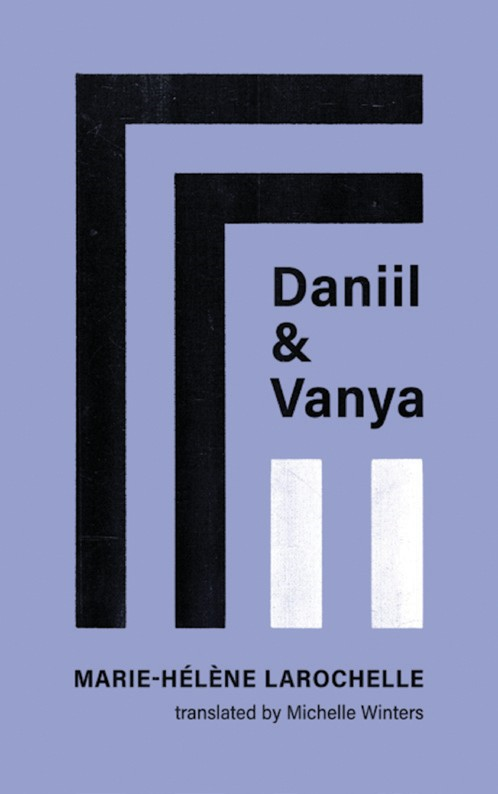Daniil & Vanya by Marie-Hélène Larochelle
Daniil & Vanya
by Marie-Hélène Larochelle
translation by Michelle Winters
invisible publishing, 2020; 224 pages, $20.95
review by Alban Goulden
Larochelle’s opening dedication is “To defeat.” unless a look in the mirror suggests a strong penchant for masochism — assuming the reader takes Marie-Hélène Larochelle seriously — why go any further? because the ending is, in fact, a fait accompli, arrived at in a straight line from those opening words, reminding me off another novel from Quebec with a deterministic narrative and closed borders that I reviewed in subTerrain earlier this year: The Electric Baths by Jean-Michel Fortier. What happens between those borders is all you get.
Although the subject of the adoption of Russian children clearly places us in a post-Soviet era, we’re otherwise in a world that seems straight out of the 1950s. St. Petersburg is depicted as one step above a gulag, its decayed concrete and grime palpable. The Toronto bourgeois couple (transplanted from Quebec) are suburban robots, preoccupied with an HGTV ethos, their self-esteem derived from brand name materialism and upper middle-class social hierarchies. The wife, Emma, is a bundle of 1950s housewife neuroses: valium depression and zero self-confidence exemplified by full paragraphs of excruciating detail on how she applies make-up. Her need to achieve the impossible goal of perfect mother and wife is painfully obvious. She’s light years from comprehending feminism. The husband, Gregory, is equally anal and stereotypical, spending his days “travelling” or at the “office,” expecting Emma to manufacture the perfect bourgeois domicile to greet him when he comes home from the male exigencies of the “real” world.
And the adoptees, Daniil and Vanya, apparently twins, are both suggestive of the Soviet psychopath Red Grant that Robert Shaw plays in From Russia With Love. This “twinship” problem is of major significance to Emma at the novel’s conclusion, although why is a mystery to the reader: any revelations don’t alter her, merely confirming the “defeat” foreshadowed from the very beginning.
None of these characters is developed beyond their stereotypes. This creates a fatalism that is disconcerting, even as Larochelle’s strong writing mesmerizes the reader’s attention until the Titanic sinks below the surface. Why create such an anachronistic world even though the novel is supposedly set in the present? Why one-dimensional characters who can’t develop/change? Why the abrupt implosion of the entire family at the end? Is the takeaway Message that humans and their marriages and social supports are completely hopeless? Adopting is doomed to failure?
Once stepping back from the impelling force of the narrative (for which Larochelle has a definite gift), the reader reaches the inescapable conclusion the book was written to fulfill that opening dedication: “To defeat.” Now, I’m not demanding a happy ending. but I would like to experience a world with something more on offer than the thin hope the characters will somehow escape the fatalistic formula in which they’re mired. That there is an exit ahead from this Highway to Hell.
However, because there’s such great craft in this writing, I look forward to Marie-Hélène Larochelle’s next novel to see if her narrative sensibilities have grown beyond the stultifying boundaries within which they’re confined in Daniil & Vanya.

